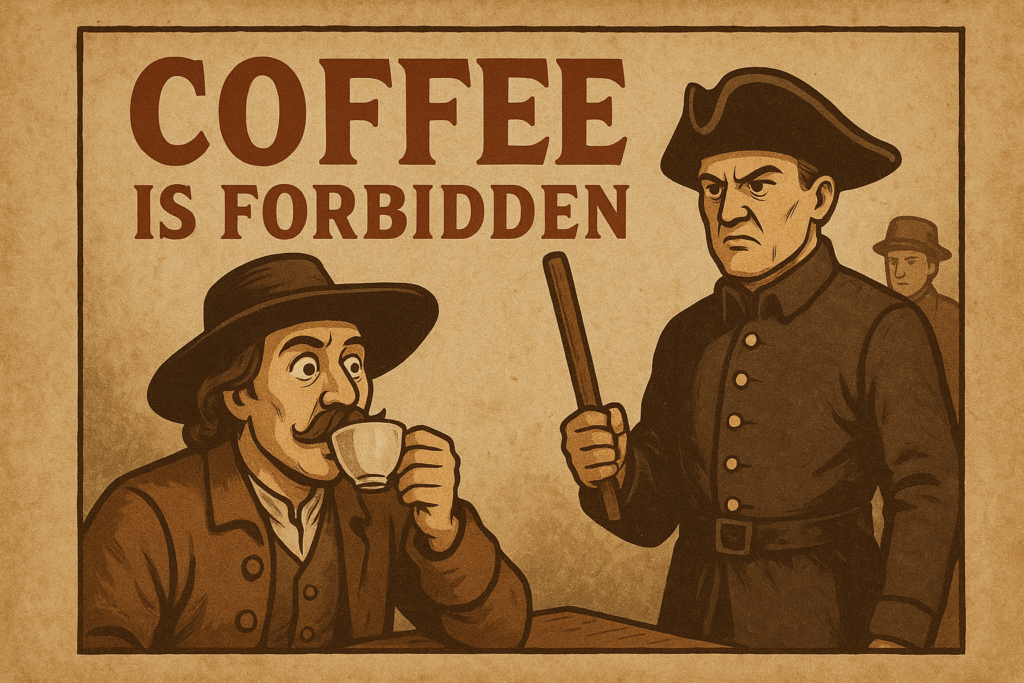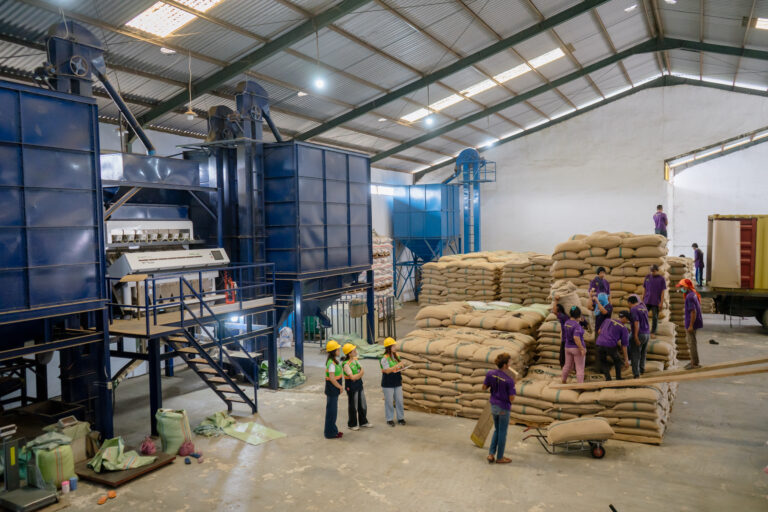
Can you imagine starting your day without coffee?
There was a time when drinking coffee could result in serious consequences, including punishment or even death. Throughout history, coffee was not always the beloved beverage it is today. From the sixteenth to the eighteenth century, coffee faced resistance and even outright bans in many parts of the world, often for reasons that were as political as they were cultural.
Here are some of the most fascinating historical accounts of coffee bans around the world.
1. Mecca, Saudi Arabia (1511)
In 1511, coffee was banned in Mecca by Governor Khair Beg. He feared that coffeehouses were fueling political discussions, dissent, and rebellion. At the time, coffeehouses were not just places to drink a beverage; they were centers of social and intellectual exchange. Traders, scholars, and ordinary citizens gathered to share news and debate ideas.
The ban, however, did not last long. Influential merchants and scholars argued that coffee was harmless and too valuable to society to be outlawed. Thanks to their persistence, the ban was lifted and coffee continued to thrive in Mecca.
2. Ottoman Empire, Turkey (1623)
Under the reign of Sultan Murad IV, drinking coffee was considered a crime. The Sultan believed that coffee contributed to unrest and moral decay. Punishments were severe, ranging from public beatings and imprisonment to execution for repeat offenders.
Despite these strict measures, people continued to enjoy coffee in secret, and coffeehouses operated discreetly as hubs of resistance. Over time, the restrictions eased, and coffee became an inseparable part of Ottoman culture, giving rise to the rich tradition of Turkish coffee that is still celebrated today.
3. Coffee Bans Across Europe
Europe also witnessed a series of controversies surrounding coffee.
Italy (1615)
When coffee first made its way to Europe, the Catholic Church initially denounced it as the “devil’s drink.” However, this changed when Pope Clement VIII decided to try it. After tasting the beverage, he reportedly enjoyed it so much that he gave his approval, allowing coffee to flourish across the continent.
Sweden (1746)
King Gustav III of Sweden went to extraordinary lengths to eliminate coffee consumption. He not only banned coffee but also prohibited coffee cups and saucers. Determined to prove coffee was harmful, the king conducted an unusual experiment by ordering two prisoners to drink several cups of coffee every day to observe its effects. The experiment failed to prove his theory, as the prisoners lived long and healthy lives, even outliving the king himself.
Prussia, Germany (1777)
In Prussia, King Frederick the Great attempted to curb coffee consumption, not for health reasons but for economic ones. He wanted to preserve beer as the primary drink of the people and argued that coffee threatened the beer industry. Despite his efforts, coffee consumption continued to grow in popularity among all classes.
Would You Survive in a Coffee-Free World
Looking back, it is hard to imagine mornings without the comforting aroma of coffee or the lively culture of coffeehouses that exist today. Despite the attempts to suppress it, coffee endured and flourished, becoming a staple beverage that shaped trade, culture, and daily rituals across the globe.
The next time you enjoy a cup of coffee, remember that this simple beverage once sparked debates, royal decrees, and even scientific experiments. Coffee is not just a drink; it is a symbol of resilience and cultural evolution.
#CoffeeHistory #FunFact #CoffeeExporter #IndonesianCoffee #RobustaCoffee #GreenCoffeeBeans #CoffeeExport #DuaPutraSekincau





